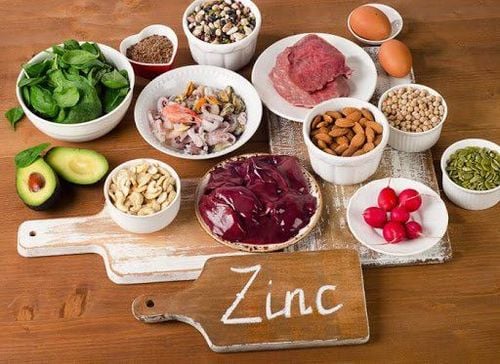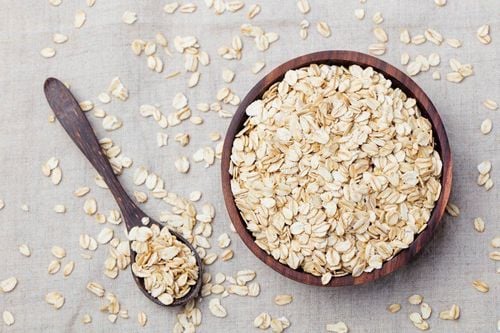Children who eat a lot but do not gain weight often suffer from malabsorption, an unbalanced diet, or a lack of micronutrients, leading to reduced absorption of nutrients, vitamins, and minerals. So, what should be supplemented for children who are slow to gain weight, and what should parents do to help their children develop a healthy weight and physical health?
1. What to do if your child is not gaining weight?
To address the issue of what to supplement for children who are slow to gain weight, parents need to ensure that their children receive adequate nutrition to catch up with the standard weight for their age. Each specific age corresponds to a certain weight range. To meet the growth needs of children, parents may need to change their diet, habits, or nutritional conditions.
What to supplement for children who are slow to gain weight will depend on the underlying cause of the slow weight gain, the severity, and any underlying health issues.
Most children with mild to moderate malnutrition and stunting are cared for at home with the support of a doctor. In some cases, children may need the help of specialists in other fields, such as nutritionists, physical therapists, nurses, or psychologists.
In cases of severe malnutrition, children need to be hospitalized from the beginning. At that time, the child's diet and weight will be closely monitored and controlled by specialists.

2. What should be supplemented for children who are slow to gain weight?
Regarding the issue of what to do if a child is not gaining weight, nutritional therapy is the main treatment applied for the child. The goal of nutritional therapy is to help the child quickly achieve the necessary weight gain, usually 2-3 times the normal increase compared to peers. What vitamins should be supplemented for children who are slow to gain weight will depend on the child's age and current nutritional status, under the guidance of a doctor. Typically, experts will recommend giving the child multivitamins to ensure adequate nutrient intake.
2.1. For infants
Parents can increase the calories in breast milk by expressing a portion of breast milk and adding a proportion of formula. This will help provide additional nutrients for the child. Additionally, you can increase the calories in formula by mixing it with less water to create a concentrated milk solution, or by adding calorie supplements such as maltodextrin or corn oil. For the safety of infants, this supplementation method should be carried out under the supervision of a doctor or nutritionist.
2.2. For older children
For older children, calorie intake can be increased by adding cheese, butter, cream, yogurt, or vegetables to their meals, or by giving them high-calorie milk-based drinks instead of whole milk.
During the period of stimulating the necessary growth rate for children, the amount of calories and protein they consume is more important than the variety of foods. In main meals and snacks, children should eat solid foods before liquids. Additionally, they should only drink 120-240 ml of pure, unsweetened fruit juice each day.
Older children should eat frequently (every 2-3 hours, not continuously). If possible, arrange for three main meals and three snacks appropriately. Additionally, parents should time the snacks so they do not interfere with the main meals (e.g., snack time should not be within an hour after a meal, and children should not be given snacks immediately if they have not finished their main meal). Healthy snacks that can be given to children include crackers, pudding, yogurt, vegetables, fresh fruit, peanut butter, boiled eggs, and cheese. In some cases, doctors may also recommend giving children multivitamins and micronutrient supplements.
3. Changing eating habits and eating environment to help children gain weight
Changes in habits and eating environment can create interest and help the child eat more. Accordingly, all family members should be aware of the importance of these changes:
- Children should be seated in a position where their head is elevated and they feel comfortable. Parents should encourage children to feed themselves (e.g., let the child hold their milk bottle or food).
- Avoid distractions during mealtime, such as watching TV, talking on the phone, or playing loud music.
- Set meal times according to a consistent schedule, regardless of who is feeding the child.
- Children's meals should have a comfortable and joyful atmosphere. If possible, let the child sit and eat with other family members. Additionally, eating together allows the child to observe how others take food, which encourages healthy eating habits.
- Do not be discouraged if the child refuses to eat new foods. Many children may need more than 10 attempts before they accept new types of food. For children with rigid eating habits (e.g., children with autism), it may take more than 30 attempts and persuasion before they accept new foods in their daily meals.
- Do not worry too much about what to do if your child is not gaining weight. Parents should encourage rather than force the child to eat, and should not use skipping meals as a punishment or use delicious foods as a reward for good behavior.
- You should praise your child when they eat well but do not punish them if they do not show good eating behavior.

4. Treating medical conditions that cause children to eat a lot but not gain weight
Sometimes the reason for a child's slow weight gain is due to certain medical conditions. In this case, the child needs to be examined and treated promptly by a doctor. The doctor can also diagnose whether the child has any food allergies or symptoms of gastroesophageal reflux disease, and then guide parents in creating an appropriate diet and nutrition plan.
When a child dislikes a certain food group (e.g., dairy products), parents should not remove them from the daily diet without consulting a doctor or nutritionist, as this may risk malnutrition and micronutrient deficiencies. Malnourished children will have slow physical development, poor resistance, and are more susceptible to common infections.
Additionally, behavioral and physical disorders can also cause children to be slow to gain weight. For example, children who have difficulty chewing or swallowing food will not be able to consume the necessary amount of calories each day.
5. Psychosocial issues
In some cases, slow weight gain in children is related to issues originating from the family, such as not having enough food reserves, parents being overly concerned about feeding their children certain foods (e.g., high-fat foods), or parents having physical or psychological conditions (e.g., alcoholism). This indirectly causes slow weight gain in children.
In cases where children have prolonged poor appetite, malabsorption, and slow development, parents should supplement their children with products containing lysine, essential trace minerals, and vitamins such as zinc, chromium, selenium, and B vitamins to meet the nutritional needs of the child. These essential vitamins also support digestion, enhance nutrient absorption, improve appetite, and help children eat better. Parents can simultaneously apply supplementation through diet and natural-origin functional foods to make it easier for the child to absorb. The most important thing is that improving the child's symptoms often takes a long time. Combining many functional foods at once or continuously changing many types in a short period can cause the child's digestive system to fail to adapt and is not good at all. Therefore, parents must be truly patient in accompanying their child and frequently visit the website vinmec.com to update useful childcare information.
Reference sources: nutifood.com.vn, hellobacsi.com,tudu.com.vn













